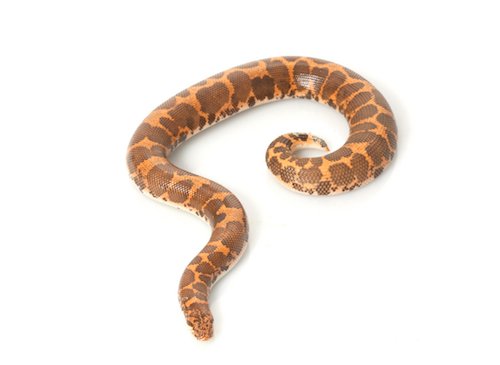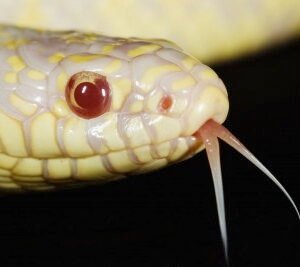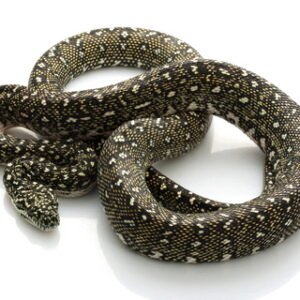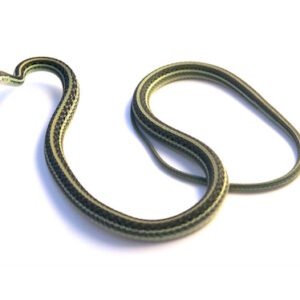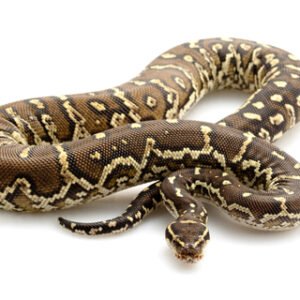Introduction to the Egyptian Sand Boa
The Egyptian Sand Boa (Eryx colubrinus) is a remarkable species that has captivated the interests of reptile enthusiasts and researchers alike. Native to the arid regions of Egypt and nearby territories, this boa is particularly well-adapted to thrive in desert environments. One of the most notable physical characteristics of the Egyptian Sand Boa is its stout body, which typically reaches lengths of approximately 20 to 30 inches, although individual sizes may vary. The coloration of this snake is predominantly light brown or sandy yellow, enabling it to blend seamlessly with the desert landscape and evade potential predators.
Additional distinctive features of the Egyptian Sand Boa include its relatively short and thick tail, which can assist in burrowing behaviors. Its scales are smooth and shiny, contributing to its effective movement through loose sand and rocky terrain. These adaptations allow the boa to navigate its habitat effortlessly, showcasing a combination of evolution and practicality essential for survival in harsh climates.
In terms of behavior, the Egyptian Sand Boa exhibits a range of fascinating traits. Primarily a nocturnal predator, this snake utilizes its keen senses to hunt for prey during the cooler nighttime hours. Its diet mainly consists of small rodents and lizards, which it captures through constriction after an ambush. Social interactions among these snakes are relatively limited, as they are solitary creatures. However, males may engage in competitive displays during the mating season, showcasing natural instincts aimed at reproduction.
Overall, the Egyptian Sand Boa’s unique adaptations and behaviors illustrate its intriguing lifestyle within the desert ecosystem, making it a captivating subject of study for anyone interested in the natural world. As we delve deeper into the specifics of this species, we will discover the various aspects that contribute to its remarkable survival and appeal in the reptile community.
Care and Keeping of the Egyptian Sand Boa as a Pet
The Egyptian Sand Boa (Eryx jaculus) is a unique and captivating pet that requires specific care considerations to thrive in captivity. Providing a suitable habitat is crucial for the well-being of these reptiles. Ideally, an enclosure should be at least 20 gallons for a single adult, with a secure lid to prevent escapes. The substrate should replicate the sandy terrain of their natural environment, with options such as aspen shavings or sand. These materials not only promote their natural burrowing behavior but also aid in humidity regulation.
Temperature and humidity are significant factors in creating a comfortable habitat for your Sand Boa. The enclosure should maintain a temperature gradient, with a basking area around 88-92°F (31-33°C) and a cooler area around 75°F (24°C). Incorporating an under-tank heater can help achieve this temperature differential. Furthermore, proper humidity levels are essential, ideally remaining between 20-30%. This can be monitored with a hygrometer and adjusted by misting or incorporating a water dish.
Feeding the Egyptian Sand Boa requires attention to their dietary needs; they primarily consume rodents. Young snakes may feed every 5-7 days, while adults typically require feeding every 10-14 days. It is important to offer appropriately sized prey, usually one that is roughly the width of the snake’s body. This practice ensures that the boa can consume its meal comfortably and healthily.
Regular veterinary check-ups are crucial for maintaining the health of your Egyptian Sand Boa. Monitoring for signs of illness, such as lethargy or changes in appetite, can help address health issues early. Additionally, common misconceptions regarding their temperament should be clarified; while they are generally non-aggressive, they can be defensive when threatened. Understanding these aspects will ensure that potential owners are well-equipped to provide exemplary care for this fascinating reptile.

